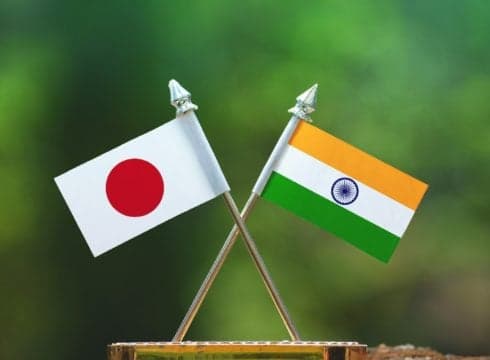SoftBank has deployed approximately $9.9 Bn in the Indian startup ecosystem
Non-SoftBank Japanese capital amounts to a little over $2 Bn
They have stuck to early-stage investing in Tier 1 cities, but are showing interest in mid-stage too
Inc42 Daily Brief
Stay Ahead With Daily News & Analysis on India’s Tech & Startup Economy
Japan and India have had strong cultural ties historically, which has enabled them to develop easy, collaborative working ties. A relationship that spans over 1,400 years — from Bodhisena arriving in Japan in 6th Century AD to spread Buddhism to Japanese scholars studying at Nalanda University to Maruti Udyog partnering with Suzuki to build India’s first ‘people’s car’ (the iconic Maruti 800) — the two countries have a rich, shared a history of learning and collaboration. This makes it interesting to see how Japan and India are and can further collaborate on the tech startup ecosystem.
Over the last few years, billions of dollars of Japanese capital has been pumped into the Indian startup ecosystem. Japanese interest in Indian startups is mostly a byproduct of the dynamics of businesses in Japan. Japan today has a massive workforce problem, while India is looking at a surplus. Japan has made it very easy for startups to list themselves — in fact, Tokyo Stock Exchange has a separate section called the Mothers board, where the shares of startups are listed and traded. Naturally, Japanese companies tend to list their companies after raising small amounts of seed capital.
This has reduced the need for a venture ecosystem in Japan and also limited the growth of the tech startup ecosystem there. However, Japanese sogo shoshas (general trading companies) are massive, involved in numerous businesses and sit on a lot of capital — capital that can be very useful and strategic to Indian tech startups.
But first, let’s take a look at how Japanese capital has worked its way into the Indian startup ecosystem. At a glance, it seems like most of the Japanese money that has come into India has been through Japanese MNC holding conglomerate SoftBank. So far, SoftBank has deployed approximately $9.9 Bn in the Indian startup ecosystem. It can, of course, be debated as to whether SoftBank money counts as Japanese capital or not. So, let’s look at all the non-SoftBank Japanese capital that has come to India — which amounts to a little over $2 Bn.
Of the Japanese companies that have invested in India, at least 8 have invested over $100 Mn each in India.
Considering that Japanese companies are known for not acting in haste and taking time to make their decisions, these are surprisingly big numbers. Of course, not all the companies they invest in may be very high-risk tech startups, but the pace of decision making and the volumes of the deals are an encouraging start.
There are at least 20 other companies that have invested in the mid-range of $11 Mn to $100 Mn.
And there are over 30 companies who have already made under $10 Mn investments in India.
This is an indicator of how keenly Japanese investors are exploring the Indian startup space, and that too in large numbers.
The geographic and stage-breakdown of Japanese investments in India showcases that they have mostly stuck to early-stage investing and Tier 1 cities in India, but have shown an inclination towards mid-stage funding as well.
The Tier 1 focus in the bulk of the investments indicates that the Japanese are still in the exploratory stage. However, they’ve made a decent proportion of Series B fundings as well, which means that they have some confidence in the Indian ecosystem and are willing to make slightly bigger bets.
But what really stands out is the trend in the number of deals done. While the first big proper deal that we measured was a $15 Mn investment by ITOCHU (one of the largest Japanese trading sogo shoshas) in the Series B funding round of NxtGen Datacenter (a Bengaluru-based data centre and enterprise cloud services company) in October 2008, there was a lull for 5 years after that. It was only after 2014 that investments by Japanese entities in Indian companies picked up and how — they have grown at a CAGR of 45% since then.
This is explosive growth by any measure. As a matter of fact, in 2019, seven deals have been reported so far already. Annualised, this is double the count from last year.
There have been a lot of shifts in Japanese investing trends in India over the last five years, but most of them have been under the radar.
The Japanese capital is highly valued for it is considered to be strategic, long-term oriented, and non-intrusive to the concerned company’s operations. And given the exit with the likes of Flipkart’s and the numerous up-rounds on the earlier investments done by Japanese VC funds and Corp VCs in the Indian tech companies, their participation in the Indian startup ecosystem is only expected to increase in the next few years.
{{#name}}{{name}}{{/name}}{{^name}}-{{/name}}
{{#description}}{{description}}...{{/description}}{{^description}}-{{/description}}
Note: We at Inc42 take our ethics very seriously. More information about it can be found here.


